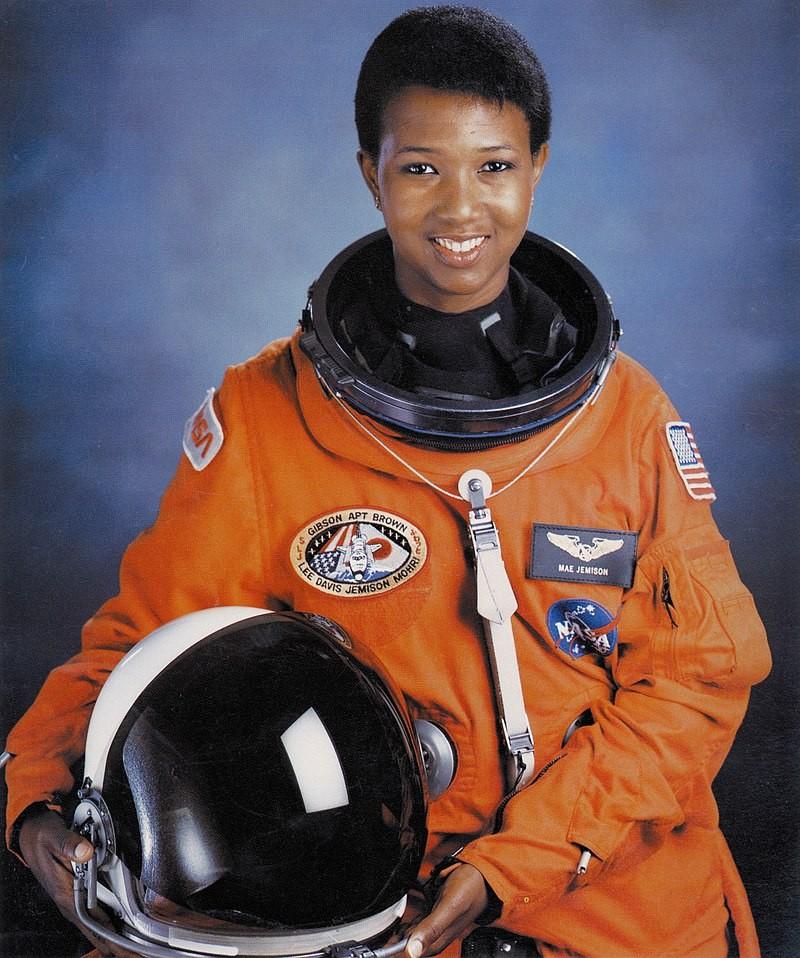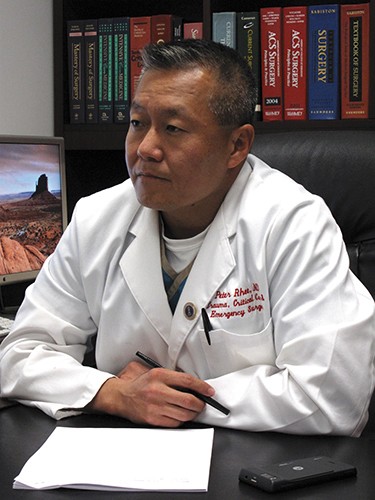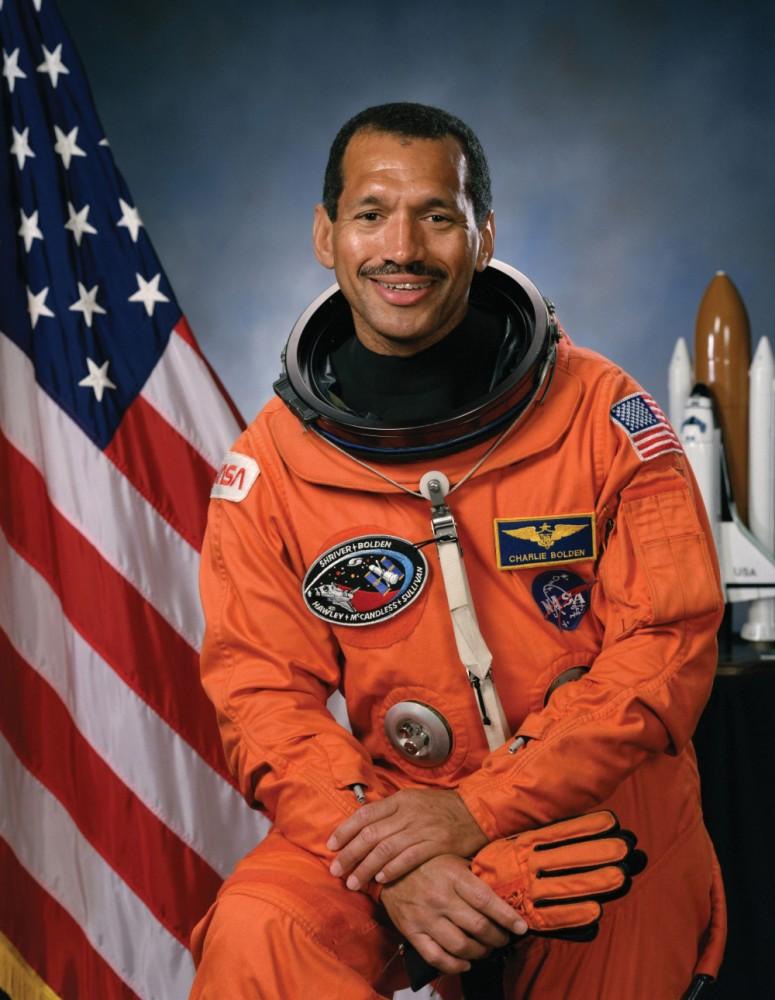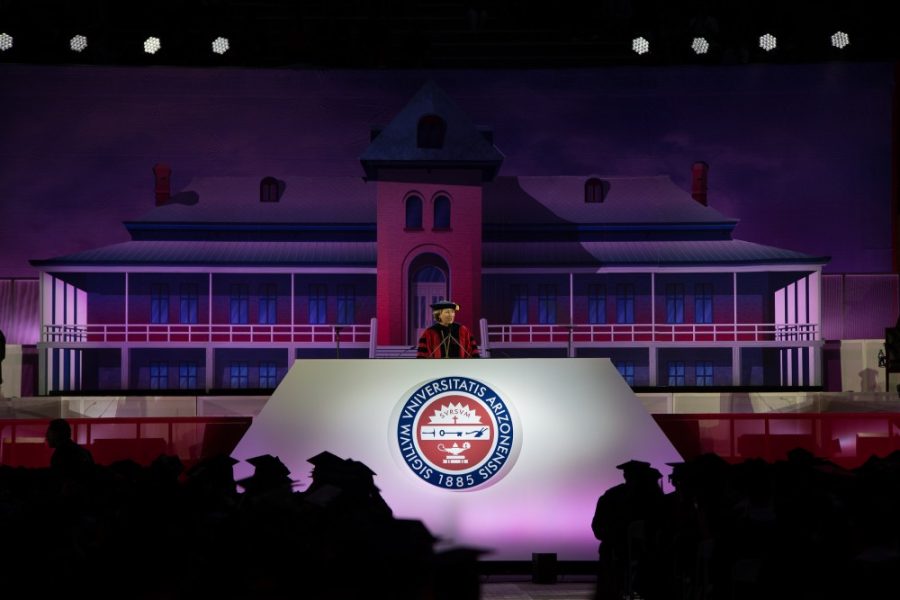The University of Arizona will host its 155th commencement on May 10. This year’s keynote speaker, Dr. Mae C. Jemison, is a former NASA astronaut who made history by being the first woman of color in space.
UA’s first commencement ceremony was a far cry from the thousands of graduates and their families who will assemble to hear Jemison, a physician, educator and entrepreneur.

RELATED: Former NASA admin named UA commencement speaker
In 1895, the second floor of Old Main was decorated in silver and sage, UA’s original colors, to celebrate the graduation of UA’s first class, consisting of two women and one man.
Throughout the years, graduation ceremonies have been held in Old Main, the McKale Center and, since 2013, Arizona Stadium.
Over the years, the commencement podium has been occupied by a number of speakers.
UA’s 1945 commencement, held nine days after the surrender of the Nazis in Berlin, saw 250 graduates listen to former UA president Rufus Bernhard von KleinSmid lecture on the responsibilities of victory. Ten years earlier, KleinSmid also served as the graduating class’ keynote speaker.
After a long career in the United States Senate and a failed presidential run, Arizona’s Barry Goldwater spoke to the graduating class of 1989, advising students to cherish freedom and honesty.
After the shooting of Arizona Representative Gabrielle Giffords and the resulting establishment of the National Institute of Civil Discourse at the UA, Dr. Peter Rhee, one of the trauma surgeons who treated Giffords, was invited to speak in 2012.

Peter Rhee, Cheif of Trauma at University Medical Center, received a $2 million endowment. The surgeon is most notable for his emergency work on former Congresswoman Gabrielle Giffords on Jan. 8, last year.
Over the last four years, the themes commencement speakers have focused on have deviated from Goldwater and von KleinSmidt’s.
In 2015, Jon Huntsman Jr., a former US ambassador to China and former governor of Utah, extolled the virtues of public service to graduates.
“I believe in public service,” Huntsman said, quoted in the Daily Wildcat. “There is no greater thrill in public service than winning the will of the people.”
In 2016, graduates heard from the U.S. Surgeon General at the time, Dr. Vivek Murthy. Dr. Murthy, a first-generation immigrant and the youngest surgeon general ever, advised students to live connected lives in order to foster inclusion and better address the large-scale problems facing society.
“Empathy feeds our desire for connection,” Murthy said commencement address. “Optimism helps us believe that connection is possible. But courage is what enables us to act and make our connections to people real.”

In 2017, Charles Frank Bolden Jr.,another former astronaut and NASA administrator, took to the stage to address graduates. In his speech, Bolden focused on inspiring students to expand their horizons and also continue to focus on self-improvement.
“If you can’t take care of other people, take care of yourself,” Bolden said, quoted in the Daily Wildcat.
RELATED: Service, importance of a degree to highlight Mabus’ commencement speech
Last year, 2018, Ray Mabus, Prformer Secretary of the Navy under President Barack Obama, spoke to the graduating class.
Mabus echoed the importance of public service and self-sacrifice reminiscent of Huntsman and von KleinSmidt’s speeches.
“The whole theme of my speech is doing something in your life that is bigger than yourself,” Mabus said to the Daily Wildcat beforehand. “Having known many of these young people, whether my daughters or sailors and Marines around the world, if you meet the people who are 18 to 27 today, it is hard not to be optimistic about the future.”
Jemison will continue the tradition of sending off UA graduates into the world with a few more last-minute, but inspiring, pieces of advice on Friday.
Follow Randall Eck on Twitter









